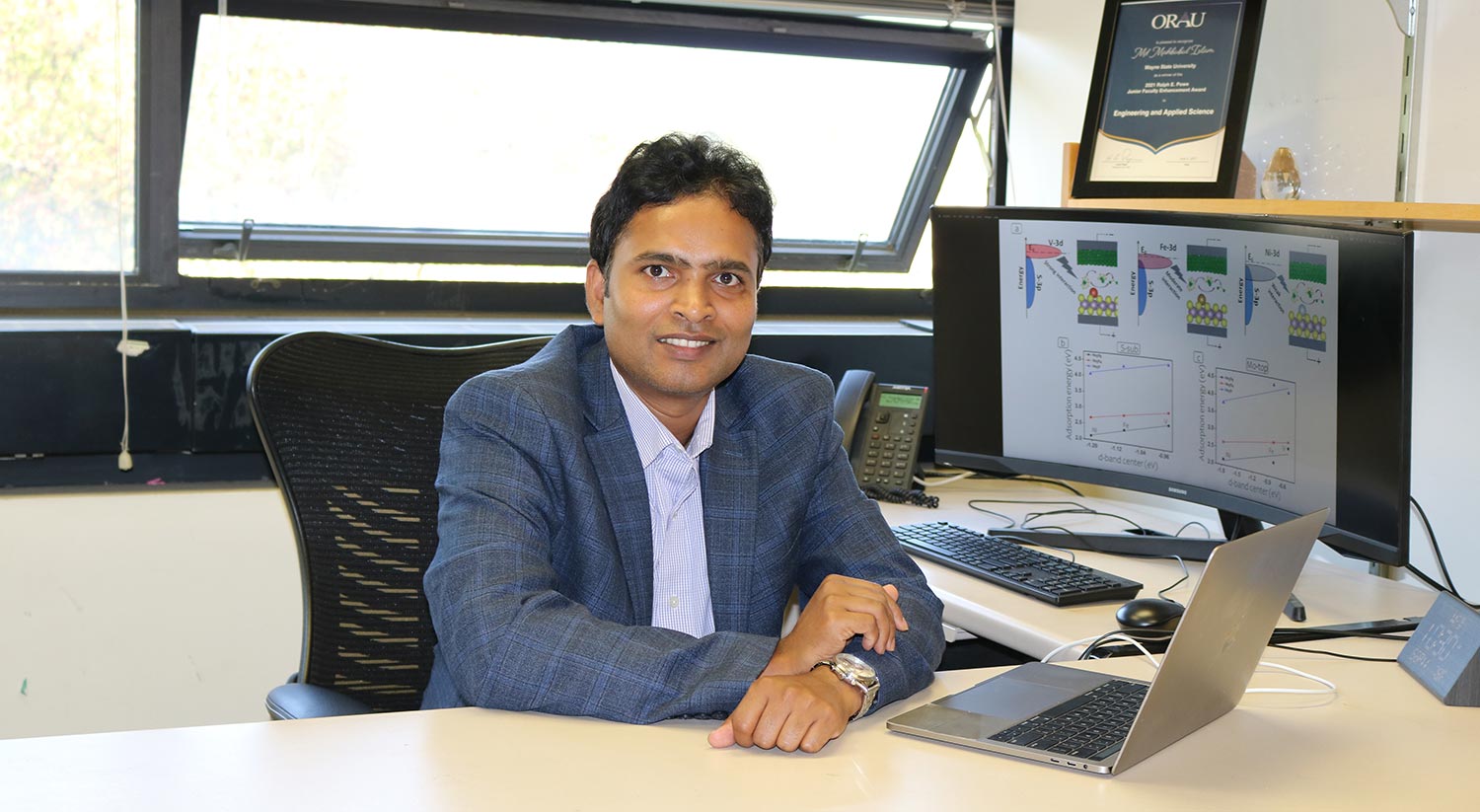Wayne State University’s Mahbub Islam receives NSF grant for collaborative research on sustainable energy storage solutions

As the world shifts toward cleaner energy solutions, the demand for efficient, cost-effective and sustainable energy storage systems is more pressing than ever. Current lithium-based batteries, while dominant, face issues of material scarcity and supply chain instability. Sodium-sulfur (Na-S) batteries offer a promising alternative, but technical challenges such as rapid capacity decay have hindered their adoption.
A partnership between researchers at Wayne State University and Michigan State University that aims to address these issues has been awarded a three-year grant from the National Science Foundation (NSF). Mahbub Islam, assistant professor of mechanical engineering at Wayne State, is a principal investigator on the project, titled "Collaborative Research: An Integrated Experimental and Computational Approach to Reveal Adsorption-Catalysis Cathode Design Principles for Na-S Batteries." The project aims to overcome critical obstacles in Na-S battery performance, offering a sustainable solution for energy storage in electric vehicles (EVs) and large-scale grid applications. Ruigang Wang, professor of chemical engineering and materials science at Michigan State, is also a PI.
“The development of sustainable energy storage solutions is crucial to achieving a net-zero carbon economy,” said Islam. “Our research aims to unlock new design principles for Na-S batteries, paving the way for longer-lasting, more reliable batteries that could revolutionize energy storage systems.”
The potential of Na-S batteries lies in their high theoretical capacity, energy density, and the abundance of sodium and sulfur. However, the "shuttle effect" of sodium polysulfides leads to rapid capacity loss and poor electrochemical performance, limiting their commercial use. The project seeks to address this by developing advanced electrocatalysts designed to immobilize and catalyze the conversion of sodium polysulfides, ultimately improving battery life and efficiency.
Islam’s contributions, which were allocated $285,942 of the total $603,681 NSF grant, will include a variety of computational techniques to explore more optimal designs for the cation and anion-doped molybdenum diselenide (MoSe2) electrocatalysts that can adsorb and catalyze sodium polysulfides, addressing the critical issues of material stability and battery capacity.
This research holds significant promise for advancing the next generation of rechargeable batteries. By offering a cost-effective and environmentally friendly alternative to lithium-based batteries, Na-S technology could support a wide range of applications, from electric vehicles to grid storage, helping reduce reliance on fossil fuels and cut greenhouse gas emissions.
“This project is an excellent example of the importance of collaborative research that aims to enhance innovation, accelerate discovery and tackle complex challenges,” said Ezemenari M. Obasi, vice president for research & innovation at Wayne State University. “I look forward to the important results that will stem from this project led by Wayne State University and Michigan State University.”
In addition to its scientific contributions, the project will provide hands-on research opportunities for undergraduate and graduate students. Islam’s team will also engage the public through outreach activities such as summer workshops and virtual reality demonstrations of battery technology, helping raise awareness of clean energy solutions and global environmental challenges.
The award number for this NSF grant is 2400109.